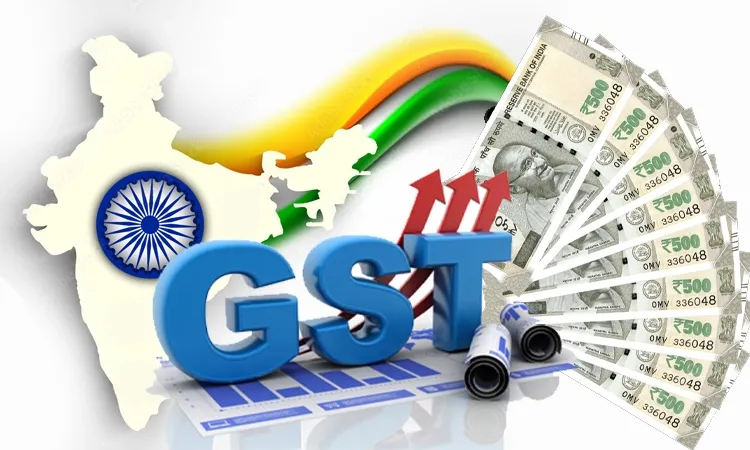How Did GST Collections Increase by 6.2% to Reach ₹1.85 Lakh Crore in June?

Synopsis
Key Takeaways
- GST collections reached ₹1.85 lakh crore in June.
- 6.2% year-on-year growth in GST collections.
- Collections have doubled in five years.
- GST has simplified tax compliance for businesses.
- 85% of taxpayers have reported a positive experience.
New Delhi, July 1 (NationPress): The Goods and Services Tax (GST) collection in India surged to Rs 1.85 lakh crore in June this year, reflecting a 6.2 percent increase compared to the same month last year, as per official data released on Tuesday.
Despite this impressive growth, the collections fell short of the all-time highs of Rs 2.37 lakh crore in April and Rs 2.01 lakh crore in May, yet they remained above Rs 1.8 lakh crore.
As GST marks 8 years since its introduction, the government highlighted that the collections have doubled in the past five years, reaching a record Rs 22.08 lakh crore in FY25, up from Rs 11.37 lakh crore in FY21.
Prime Minister Narendra Modi remarked that eight years post-GST implementation on July 1, 2017, it has emerged as a pivotal reform that has transformed India's economic landscape.
He stated, "By alleviating the compliance burden, it has significantly enhanced the Ease of Doing Business, especially for small and medium enterprises. GST has been a driving force for economic growth and has promoted true cooperative federalism by making states equal contributors in the mission to unify India's market," in a statement on X.
The number of taxpayers has more than doubled from 60 lakh to over 1.51 crore in the past eight years under the GST framework.
The average monthly collection was Rs 1.84 lakh crore in 2024-25, marking an exceptional year. In 2020–21, the total was Rs 11.37 lakh crore, with a monthly mean of Rs 95,000 crore. This rose to Rs 14.83 lakh crore the following year, and further to Rs 18.08 lakh crore in 2022–23. In 2023–24, GST collections hit Rs 20.18 lakh crore, highlighting steady growth in compliance and economic activity.
The One-Nation One-Tax initiative has simplified tax compliance, reduced business costs, and allowed smoother movement of goods between states. It amalgamated various indirect taxes under one framework, replacing levies such as excise duty, service tax, VAT, and others. This has mitigated the cascading tax effects and established consistency in the tax structure nationwide.
A Deloitte survey indicated that 85 percent of taxpayers reported a "positive experience with GST," perceiving it as a more straightforward and transparent tax process that has facilitated the ease of doing business.
A study by the Finance Ministry revealed that GST has helped households save at least four percent on monthly expenses, resulting in lower spending on essential goods.
Moreover, GST has revolutionized the logistics sector. Long waits at state borders and corruption-ridden checkpoints are now history. Goods can now transit more swiftly and freely across state borders.
Transport times have improved by over 33 percent, as highlighted by several studies. Companies have reduced fuel expenses, and main highways are less congested.









